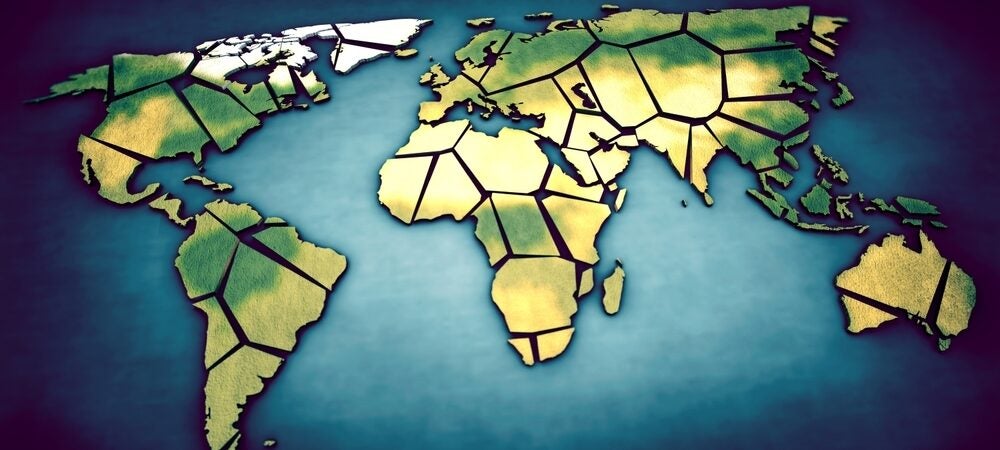Trade served the world economy very well in 2022. Despite a global pandemic that has caused nearly 7 million deaths (over 1 million of them in the United States), trade bounced back and supplied needed vaccines, medical supplies, and equipment around the world–while supporting an economic recovery that was much stronger and faster than projected.
Global supply chains proved remarkably resilient. In June, the World Trade Organization (WTO) had a reasonably successful Ministerial Conference attended by trade ministers from most of the world’s trading nations. They made good progress on reining in fisheries subsidies that were stripping the oceans bare of stocks of this important food source for the world’s peoples and undermining the livelihood of fishermen, particularly in very poor countries.
The ministers noted that work was underway to address environmental issues and promised to address needed reforms of the global trade organization. They dodged a bullet by keeping in place a moratorium on levying customs duties on e-commerce, with digital trade being one of the bright growth areas of international commerce.
This does not suggest that there will be smooth sailing for international trade in 2023. There are three areas of U.S. trade policy that will require particular attention.
U.S.-China trade
Under stress for many years, trade relations between the world’s two largest economies are beginning to fracture.
Trade data hasn’t shown this–yet. U.S. imports from China are up substantially from both last year and pre-pandemic levels. However, President Biden’s U.S. National Security Strategy has condemned China’s behavior. The gloves have come off. In October, the U.S. announced limits on exports to China of high-end technologies and semiconductors. These measures are qualitatively different from the broad Trump tariffs. The new sanctions target the growth of the technological capability of industries that China has identified as its highest priority.
China has not yet launched visible countermeasures against the US. However, China has a record of using trade coercion to retaliate against policies that it disfavors. A further Chinese response to the recent U.S. export controls can be expected in 2023. It may not come to that, but continuing escalation could presage the beginning of a new Cold War.
Discord among friends
While the Biden Administration deserves kudos for its leadership of like-minded democracies with respect to sanctions against Russia, all is not well in relations among the allies. European and Asian allies resent what they view as discrimination contained in the Inflation Reduction Act–providing subsidies only to the purchase of U.S.-produced electric vehicles and batteries.
Allies are equally concerned that America’s CHIPS Act is leading to a semiconductor subsidy competition that they might not be able to match. Further friction can be expected as the U.S. presses its allies to align with its China policy. The U.S. may find that Europe, Japan, and Korea, while wary of China, have a different perspective, one that places a greater value maintaining good trade relations with a market of 1.4 billion consumers.
Unilateral actions taken by Europe such as putting in place a carbon border adjustment scheme may also impact transatlantic relations.
It is not at all clear that there is enough on offer from the U.S. to further economic relations with its allies and trading partners. The Biden Administration has not proposed any additional access to the American market, nor sought any from its trading partners. Despite speaking warmly of friend-shoring, there is no clear trade-liberalizing component to the administration’s initiatives with Asia (the Indo-Pacific Economic Framework), with Europe (the Trade and Technology Council), or with its neighbors in this hemisphere (the Americas Partnership for Economic Prosperity).
The current U.S.-led global trading system is fraying. In too many cases, the rules are unenforceable or have large gaps. The largest players are not obeying the rules, and where there are no rules, they are unwilling or unable to work together to fill in the gaps in the rulebook. Increasingly, trading nations are relying on alternative venues to negotiate trade agreements.
The trading system is at risk of fragmenting not only due to geopolitical rivalry, but also because the system is not being updated to meet the largest problems facing humanity–agreeing on measures to fight climate change and future pandemics effectively and making sure that the global digital economy functions well.
The U.S. is clear in its global leadership for democracy–but it should equally invest in a foreign economic policy that unites like-minded countries in an open, fair, and effective trade system that meets U.S. geopolitical objectives.
With goodwill and strong efforts, the 164 members of the WTO can find a way to pull together and move toward a better place. America should be in the lead to make this happen.
Alan Wm. Wolff is a former U.S. deputy trade representative and World Trade Organization deputy director-general. He is currently a distinguished visiting fellow at the Peterson Institute for International Economics (PIIE). His new book, “Revitalizing the World Trading System”, Cambridge University Press, will be published later this spring.
To read the full article, please click here.

